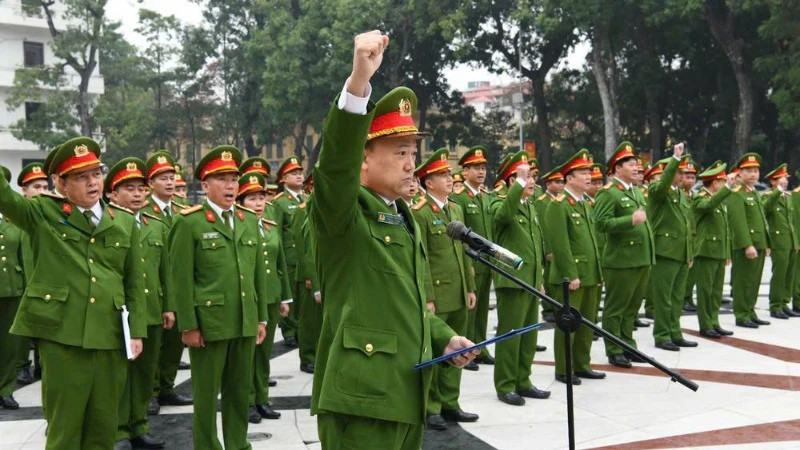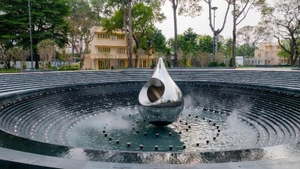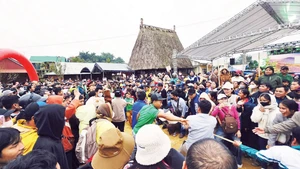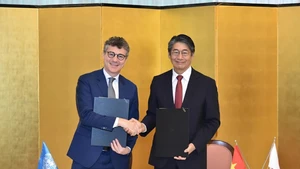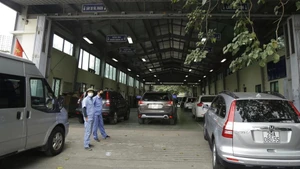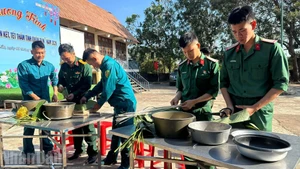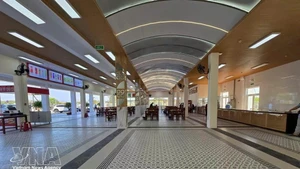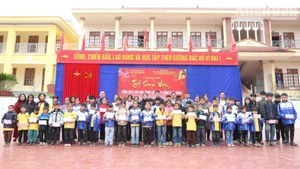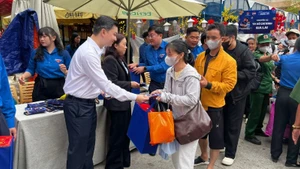Over the past 28 years of development (March 12, 1997 –2025), officers of the Drug Crime Investigation Police Force have steadfastly upheld four vows of honour. They have never shied away from difficulties or hardships, always ready to face danger, determined to fight uncompromisingly against drug crime, making vital contributions to national security and public order.
Twenty-nine officers and soldiers from the police, military, and the public have fallen. Among them were many young individuals who left behind families and unfulfilled dreams of service and contribution.
Sacrificing oneself for the nation
According to the Ministry of Public Security, the Drug Crime Investigation Police Force – under the Ministry’s leadership and coordination with other units – detects and successfully investigates more than 23,000 cases annually, arresting over 32,000 drug offenders. Nearly 1,000 drug hotspots and hubs are dismantled each year. Authorities have seized large quantities of narcotics, weapons, vehicles, and assets connected to criminal activity, including several major cross-border operations.
Alongside the outstanding achievements are the losses and sacrifices made by the anti-drug forces. Most recently, Major Nguyen Dang Khai, aged 29, from the Drug Crime Investigation Division of the Quang Ninh Provincial Police, heroically laid down his life while pursuing suspects involved in a large-scale inter-provincial drug trafficking ring on the night of April 17 in Ha Long City.
Mourning his sacrifice at such a young age, Lieutenant General Dong Dai Loc, former Deputy Director General of the General Department of Police under the Ministry of Public Security, stated: “His sacrifice has written a heroic ballad in peacetime – where soldiers do not carry guns to the battlefield, but quietly dedicate themselves and shed blood to ensure peace for society.”
At the ceremony launching the emulation movement to follow the courageous example of martyr Nguyen Dang Khai, held by the Drug Crime Investigation Police Department, Lieutenant General Nguyen Van Vien, Director of the Department, affirmed: “Fighting drug crime is a battle filled with hardship, suffering, and trials, measured in sweat, tears, and blood even in times of peace – but it is also an honour and a source of pride.”
Nguyen Dang Khai’s heroic sacrifice is a shining symbol of revolutionary heroism in peacetime, reflecting his courage, loyalty, and sacred sense of duty “to forget oneself for the country, to serve the people,” Lieutenant General Vien emphasised.
Earlier, at a similar ceremony organised by the Quang Ninh Provincial Police, Colonel Tran Van Phuc, Director of the Provincial Police, urged all local forces to emulate the example of martyr Nguyen Dang Khai, turning his story into a motivational force for officers to strive for excellence in fulfilling their duties. He called for intensified political and ideological education, promoting a strong sense of responsibility, and an unyielding determination to fight crime, particularly drug rings and inter-provincial and multi-regional criminal networks.
Putting national peace above personal worries
According to Lieutenant General Nguyen Van Vien, drugs will continue to pose a serious threat to national security, destroy future generations, and break countless families. As such, the war against drug crime and addiction is expected to remain grueling, prolonged, and violent. This is why we need courageous hearts and officers who put the nation’s peace above their own concerns.
The head of the Drug Crime Investigation Police Force called on all officers to uphold the heroic traditions of the People's Armed Forces and remain committed to the sacred vow to "fight uncompromisingly against drug crime," with a sense of great responsibility, iron will, humanitarian spirit, and unyielding resolve in the face of danger.
Given the increasingly aggressive and reckless behaviour of drug traffickers – who are willing to fight back violently when discovered or pursued – Lieutenant General Vien urged unit commanders to show strong leadership and anticipate complex situations during operations.
He stressed the need for clear, scientific combat plans that ensure absolute safety for both officers and the public. He also emphasised the importance of improving equipment, weaponry, and specialised vehicles used to apprehend dangerous criminals. Furthermore, he called for lessons to be learned from past tragedies to prevent unnecessary losses.
From this especially serious case, Lieutenant General Dong Dai Loc also drew several valuable lessons: the need to enhance capabilities for early detection and prevention of drug crimes – particularly organised and armed criminal groups operating across provinces. Mastery of local areas and effective management of critical routes and sensitive zones are key requirements.
Constant, flexible, and tight coordination must be maintained between all forces – from provincial police and the Ministry’s professional departments to local governments. This coordination is a decisive factor in controlling emergency and complex situations.
The anti-drug force must continue to modernise in both equipment and policy, ensuring fair treatment for frontline officers. Every citizen should also understand their role in the fight against drugs – from reporting violations to protecting children and fostering healthy lifestyles. Ultimately, the community itself serves as the most effective “soft shield” in addressing the root causes of this issue.
